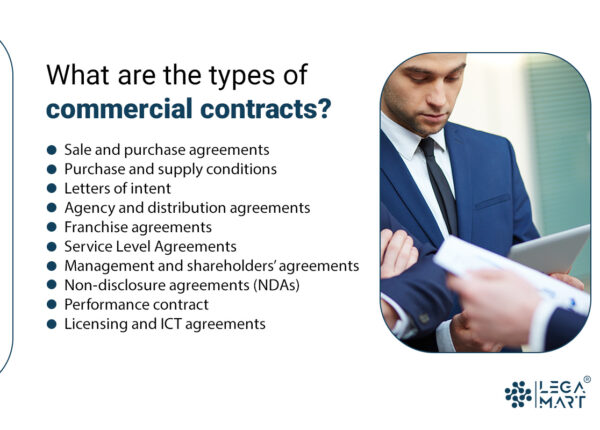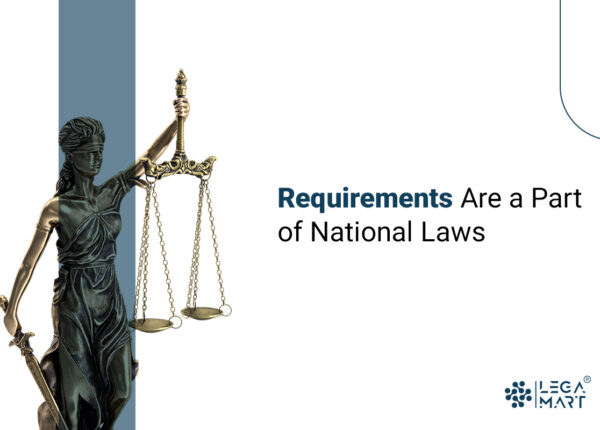When we are talking about the choice of law in contracts, we mean the law which applies to the contract and governs that agreement.
Usually, two factions participating in a business deal are bound by a commercial contract. The legal documents that bind these parties together comprise rules which either side needs to follow. The contractual agreement will dictate the severe consequences of actions that are not favored by either party. Contracts cover most of the issues that can arise in the future relating to the agreement.
Generally, the contract contains a list of measures and a procedure that must be followed. In the instance of a disagreement, the arbitral tribunal should decide which law applies to the contract. If the contract fails to meet the demands of a question, the arbitral tribunal must determine what law needs to be applied to the situation. The debate among most arbitrators is what law requires to be chosen while settling issues in contracts.
Commercial Contract Definition
As Wikipedia defined, A contract is a legally enforceable agreement that creates, defines, and governs mutual rights and obligations among its parties. A contract typically involves the transfer of goods, services, money, or a promise to transfer any of those at a future date. Contract law, the field of the law of obligations concerned with contracts, is based on the principle that agreements must be honored or, in its Latin phrase, Pacta Sunt Servanda.
But to define Commercial Contract, usually, contracts that deal with the issues of commerce and trade is called Commercial Contract.
What are the types of commercial contracts?

Commercial contracts are used to lay down agreements with customers, suppliers, partners, and other stakeholders. They are part of each entrepreneur’s journey and are crucial to any enterprise.
The common commercial contracts that are being drafted are:
- Sale and purchase agreements
- Purchase and supply conditions
- Letters of intent
- Agency and distribution agreements
- Franchise agreements
- Service Level Agreements
- Management and shareholders’ agreements
- Non-disclosure agreements (NDAs)
- Performance contract
- Licensing and ICT agreements
What are Commercial Terms in a Contract?
To answer the question of what goes in a commercial contract and its inclusions, we should be aware that many of the contract clauses that are used are applicable across sectors;
In fact, there are certain contract clauses that are likely to make an appearance in just about any contract that is drafted.
Commercial contracts, in particular, tend to contain a standard set of terms and conditions, which they usually are:
- Confidentiality
- Force Majeur
- Termination Trigger
- Jurisdiction
- Damages
- Dispute Resolution
The Responsibilities of Arbitral Tribunals
The arbitral tribunal is given the responsibility to choose a law, local or international, which fits best. This law must solve the issues faced by either group in the agreement. However, this freedom often allows arbitral tribunals to use local laws for international agreements. This is seen as an unseemly approach to solving issues with contractual matters, as mentioned by Reza Beheshti in his recent article;
“A modern approach suggests that localizing legal issues originated from an international contract is inappropriate and that the tribunal should conduct an assessment to identify international or non-national rules or practices appropriate to the issues at hand.”
Reza Beheshti, International Lawyer
The Suggestion of Methods
There are certain criteria that need to be met when it comes to choosing the law. There are many ways in which the arbitral tribunal can come to a conclusion and pick a given law. One of the most widely accepted methods is assessing the contract and analyzing if it suffices to solve the given issues.
There is another method too that Dr. Beheshti suggested in the Uniform Law Review of Oxford Academic. He suggested that the tribunal should apply “general principles of law”, or “general principles of international commercial law“.
Also, rather than searching for these general principles or examination of the contractual terms and conditions, the tribunal should prioritize the commercial considerations as well as expectations.
Criteria of the Framework
Finally, the choice of law applicable depends on the needs of the business and the requirements of the parties. It is essential that the tribunal focuses on satisfying the demands of both parties with their choice of law. The choice can be made based on a given framework dictated by Reza Beheshti. He talked about the three criteria of this framework.
These are:
- The first is commercial certainty. This is one of the most crucial qualities of mercantile contracts.
- The second is performance interest. Generally, this is referred to as the only pure contractual interest.
- And last but not least, is the relational theory of contracts. This theory focuses on informal devices for the regulation of long-term contractual relations.
Commercial Legalities Differ
If the kind of law, national, international, or local, is not specified within the contract, both parties may have to face loopholes in the agreement. Many underlying rules may arise along with ambiguity in the agreements. International, local, and even state laws often differ from each other when it comes to commercial legalities. It is essential that when a contract is drafted, the proper structure of the law and the choice of laws applicable must be specified.
A great example of a case like this is the “hardship clause”. Hardship clauses are subject to changes over long periods of time. This is because many organizations pick hardship clauses to determine a partnership over long time periods. The rules and the clauses of the agreement are subject to change with changing circumstances.
Requirements Are a Part of National Laws

The requirements for changes that need to be made to this clause come under national laws. This makes it compulsory for the parties to keep this law in mind while drafting their contract. It is important for the parties to assess each law and predict the circumstances under which these laws could be applicable. The laws that apply to hardship clauses make it necessary for modifications to be made in the future.
Contract Lawyers of LegaMart
Here are some of our best Contracts in LegaMart that can provide your Contract drafting needs;
Of course, you can see the whole list here.
- James WATSON
James Watson, a graduate of Oxford University, is Head of Legal, UK, for one of the world’s leading visual effects and animation companies for film and television. With twenty years of experience, Watson devoted the past 11 years of his life to handle creative media companies with his strategic and extensive legal knowledge. James Watson represents clients in England, Wales, Canada, United States, and India in intellectual property, contract, and media law matters. He is an Innovative and agile head of legal with particular experience in creative industries. - Tugce SIK
Tugce is a qualified Turkish Lawyer registered with Istanbul Bar Association. She has completed her LLM studies in the City, University of London. Preparing for the QLTS Assessment to become a qualified Solicitor, she recently passed the MCT and will be taking the OSCE in 2021. Currently, Tugce is working as a legal advisor at Mclaren Automotive on a new car launch project and as a part-time commercial contracts lawyer in SKS Law firm at the same time. By looking forward to developing a career in corporate and commercial law, Ms. Sik can be a great match for your commercial and corporate-related cases. - Aysegul SENOZ
Aysegul is a highly motivated young lawyer in Turkey who also qualified as a solicitor in the UK. She has great legal experiences regarding Turkish jurisdiction, including legal advice and legal drafting. In 2020 she dedicated a reasonable time to maritime-related legal topics, and right now, she is well educated in this field. She is persevering in reading and writing, which has brought her achievements in writing contests and publishing articles. As a Turkish lawyer and with her updated legal knowledge about UK law, Aysegul can assist you with your cases.
What can be concluded?
In conclusion, all parties must pay close attention to the choice of law mentioned in contractual agreements. This helps avoid sneaky rules and loopholes in contracts further down the line. However, in case you do face issues where the choice of law has multiple options, the above-mentioned framework and approach should help you decide. This will work in favor of both parties and help dissolve issues with ease.




